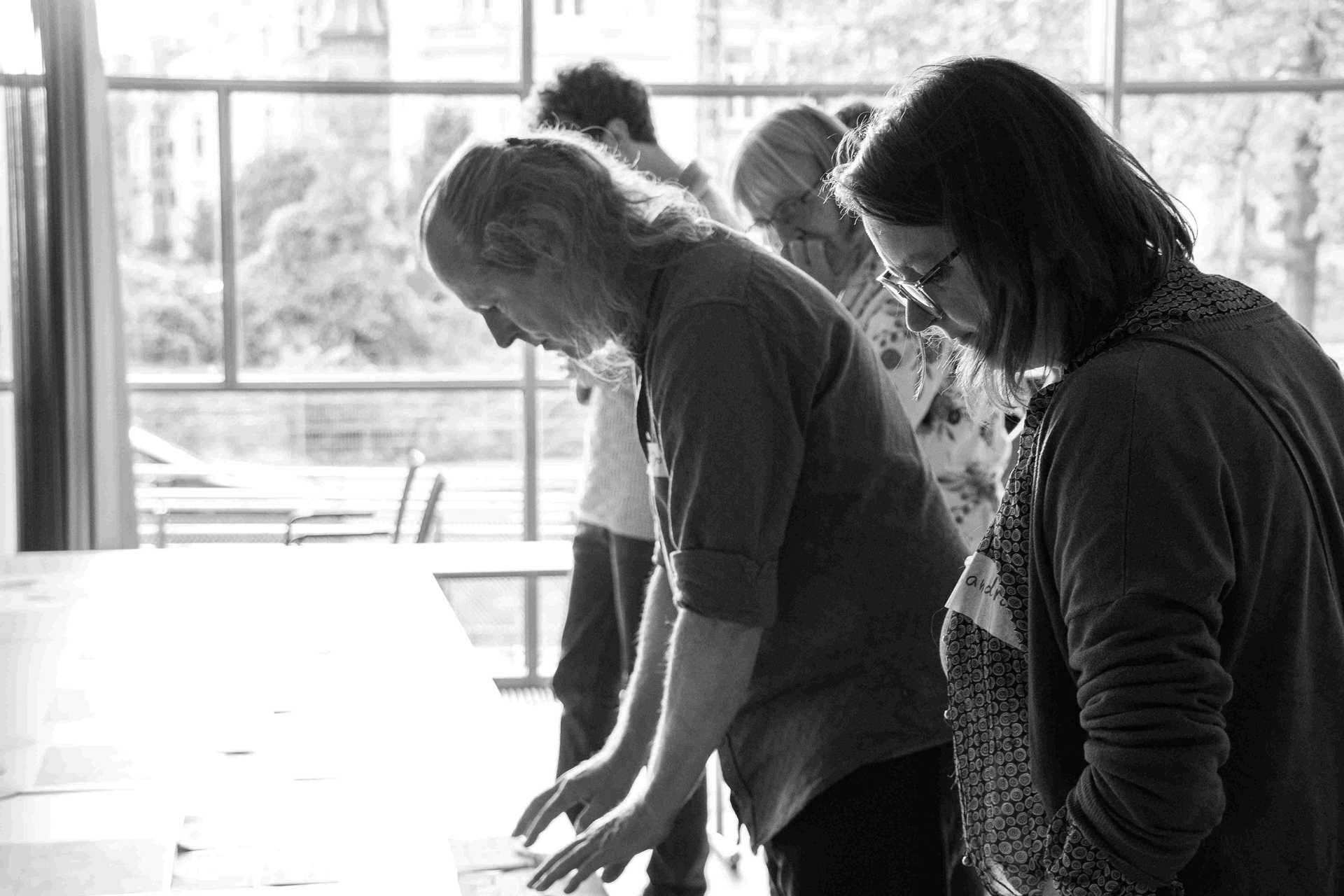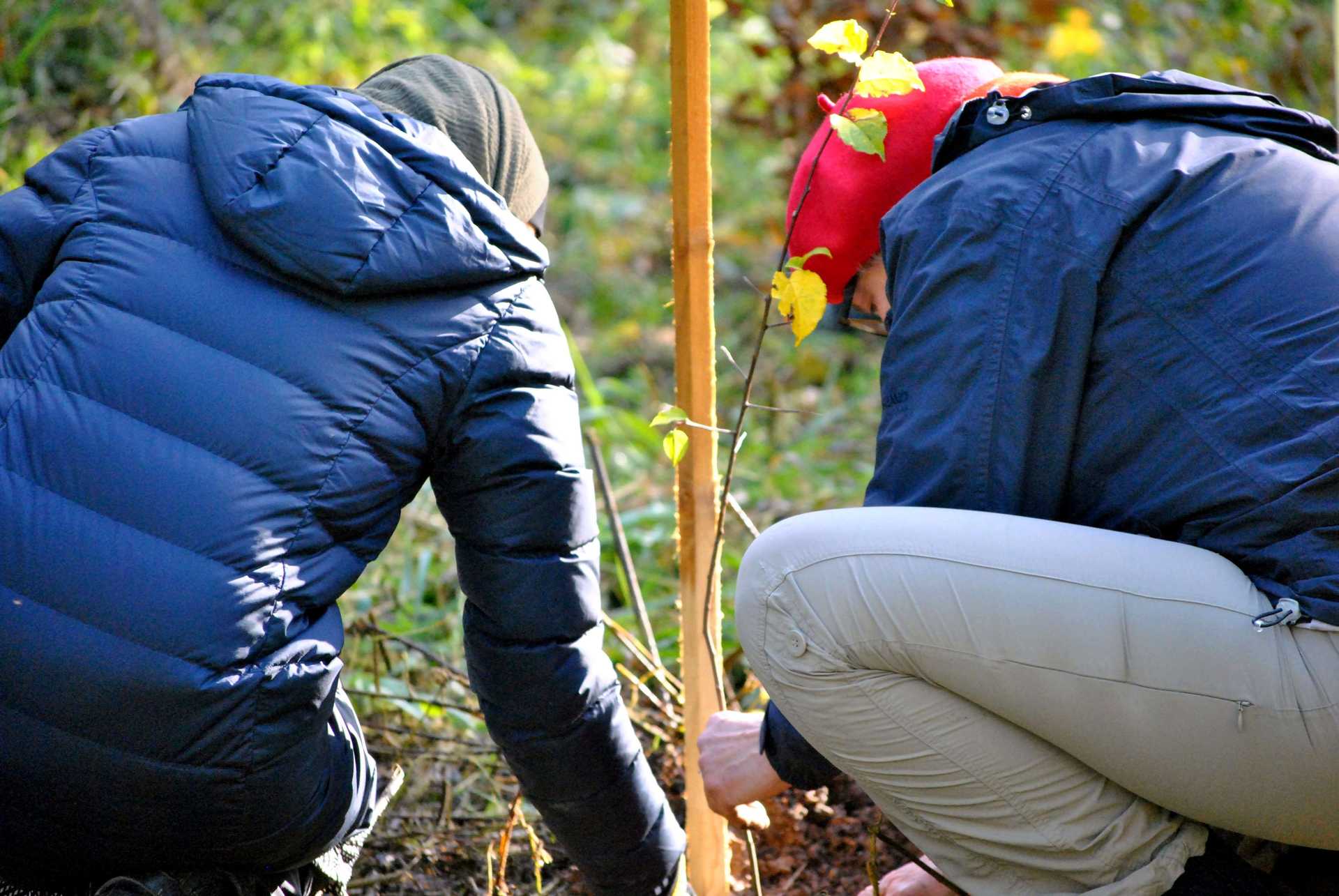These were four highlights from the “Culture and Climate Protection” future workshops from Climate Alliance Germany, the largest civil society league for climate protection in Germany. This format was completely new territory for the Climate Alliance. It had primarily focused on various national and international fields of action for socially responsible and internationally fair climate and energy policy during the first decades of its existence. Unlike the shifts in the areas of energy, mobility, and agriculture, the “cultural turn” was not an independent focus initially.
In 2919, membership led to the emergence of an informal “Interculturality Working Group”. In the following years, the working group began to negotiate and formulate a “working paper on culture and climate protection”. This made it clear that the Climate Alliance Germany has a particularly valuable and unique selling point here: The broad diversity of its members and their professional perspectives.
This topic had mostly been approached in terms of the interests and resources of the cultural and media professionals in other networks and initiatives, some of which have been engaged with “culture and sustainability” for quite a while. This had led to the debate being very focused on two perspectives. On the one hand, the so-called “operational ecology” (how can the own institutional actions be made more compatible with climate and environmental goals?), and on the other hand, the more programmatic question of how climate and environmental issues can be applied, depicted or conveyed artistically.
These two perspectives are undoubtedly very important. But so far, what has been lacking in Germany are spaces and occasions for an interdisciplinary exchange focusing on the transformative potential of culture in all its diversity. “Culture” is a word with many meanings that are linked to the climate crisis and climate protection in the most varied of ways. One of these meanings always resonates when we talk about “cultural diversity” or “cultural exchange”: people are shaped by their environment, their religion or their community. Cultural diversity offers many opportunities and can be very enriching. However, it can also trigger feelings of alienation and conflict – for example, when people have to leave their home country against their will and have to find a new home for themselves again.
Another meaning is included in categories such as “everyday culture” or “food culture”. The way we humans organize our lives and economies is culturally mediated, not natural. According to the latest Assessment Report of the Intergovernmental Panel on Climate Change (AR6, IPCC), global greenhouse gas emissions could be reduced by 40-70% by changing consumption, patterns of usage as well as supply and demand behaviors. The IPCC specifically points out that these behaviors are shaped by social and cultural norms and that corresponding reduction options are compatible with an improvement in basic well-being for everyone.
So far, there has been far too little discussion of the question of whether and how “culture” (with all the resonating meanings) can become a driving force for change at this point. How could such a cultural transformation be shaped? What role could be played by cultural institutions, religious communities, the media, associations and educational institutions? How can politics support their transformative efforts?
This year’s project, “Climate Protection Needs Many Voices”, conceived by our Interculturality working group and implemented with the support of the Allianz Foundation, focused on these questions and attempted to initiate a lively discourse: Internally, within the membership of the Climate Alliance, and externally, in the direction of cultural policy and cultural stakeholders.
The four “future workshops on culture and climate protection” formed the heart of this project. The diversity of the participants and the diversity of the highlights described at the beginning reflect the special quality and challenge of the topic. Clear, quantifiable goals can be set for many fields of action in climate protection. Such goals are much more difficult to define for culture (and even more so for the diversity and abundance of cultures). Whether and how their transformative potential can be steered in a specific direction, how the various subcultures influence each other, where culture is part of the problem and how it can become part of the solution – these are complex questions for which there are no simple answers. This is why “Future Workshops” often resembled a joint, circular search process.
But if you look at the Future Workshops and the other project modules as a whole, some clearly recognizable through lines emerge. At the beginning of 2024, we will present a detailed protocol with recommendations for the next steps forward.
The Future Workshops were a first step in a promising direction.
More information on the new cultural focus of Climate Alliance Germany.

